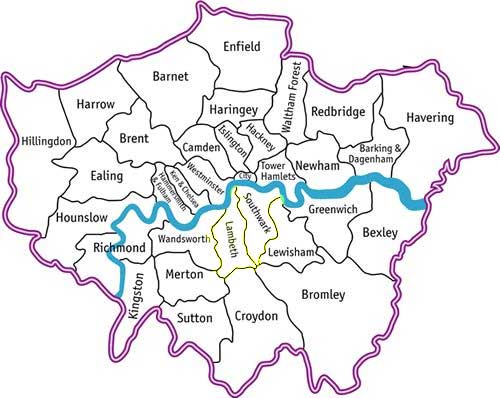My role
- About Us
Guys and St Thomas's back innovative MHF project for London men
The Forum is about to undertake one of the biggest local men's health projects ever commissioned.
 The five year Men’s Health Improvement Programme for Lambeth and Southwark (MHIPLS) is being made possible through a grant from the Guy's and St Thomas' Charity, which backs innovation in health and healthcare in the area.
The five year Men’s Health Improvement Programme for Lambeth and Southwark (MHIPLS) is being made possible through a grant from the Guy's and St Thomas' Charity, which backs innovation in health and healthcare in the area.Life expectancy of men in Lambeth and Southwark at 77 and 78.2 years at birth respectively lags behind the national average and is lower than most other London boroughs. The two-stage project aims to improve men’s health outcomes and reduce health inequalities.
The first stage will be to identify and adapt best practice by building on existing local work and developing partnerships with local groups and organisations, beginning with a Community Men’s Health Needs Assessment (CMHNA). This initial community development stage will be carried out with the Centre for Men's Health at Leeds Metropolitan University.
The second stage will involve the development of an innovative suite of health campaigns, interventions and activities, designed to empower men and maximise collaboration between statutory, voluntary and commercial stakeholders. The programme will be robustly evaluated.
Groundwork for delivery stages
The community development work will be overseen by MHF policy officer David Wilkins. 'We have specifically reflected on the most recent Joint Strategic Needs Assessments for each borough in developing our objectives. At the end of the Scoping and Development stage we will also ensure that the final objectives we set fit with key health and social care priorities, including the Public Health and NHS Outcomes Frameworks. The first year of this project will provide groundwork and lay the foundations for the later delivery stages of the programme.'
Exactly what will be delivered depends on the CMHNA but it could include:
- collaborative working with health and social care services and seldom heard groups of local men (particularly older and BME men) to design ‘male friendly’ interventions that improve access to primary care, as well as enhancing the quality of services for men and their experiences of using services
- working with frontline primary care professionals to improve their understanding of male patients and enhance their skills to engage effectively with men.
- designing public awareness campaigns to target sectors of the male population at most risk
- developing targeted early interventions in collaboration with health and social care agencies and local men, for groups of men at highest risk of developing serious illness.
- developing local volunteer Men’s Health Champions and supporting them to engage with relevant health and social care agencies (Health and Wellbeing Boards, local HealthWatch, Clinical Commissioning Groups and Senates) to ensure that men’s health needs and preferences are considered in the planning and commissioning of health and social care services
- developing mechanisms to enable men from the area to contribute to the design and delivery of local health and social care services, through co-production.
The MHF hopes the learning will shape the development of new products and services.
Page created on October 26th, 2012
Page updated on October 31st, 2012
Comments
Haringey health humour
I'd rather admit I love John Ryan!


 Donate to the MHF
Donate to the MHF
 Man MOT
Man MOT